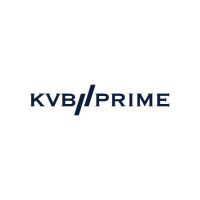The Hang Seng Index (HSI) is not merely a financial metric but a symbol of Hong Kong's economic prowess and its integration into global markets. Established in 1969 by the Hang Seng Bank, the index has grown to become one of Asia's most recognized benchmarks, reflecting the diverse sectors and robust economy of Hong Kong.
Historical Evolution
At its inception, the HSI comprised 33 constituent stocks, primarily from the finance and real estate sectors. Over the decades, the index has expanded significantly to include a more comprehensive array of industries. This growth mirrors Hong Kong's transformation from a regional trading hub to a global financial center. The index's evolution reflects the dynamism and resilience of Hong Kong's economy amid changing global economic landscapes and regional challenges.
Index Composition and Methodology
The Hang Seng Index is structured as a market-capitalization-weighted index, meaning that larger companies exert a greater influence on its movements. This methodology ensures that the index accurately reflects the performance of Hong Kong's equity market. As of [current date], the HSI comprises a diverse portfolio of constituent stocks, spanning sectors such as financial services, real estate, telecommunications, utilities, consumer goods, and technology. Each sector's representation in the index reflects its contribution to Hong Kong's economic output and market dynamics.
Economic Significance
The HSI holds significant importance for investors, analysts, and policymakers worldwide. As a leading indicator of Hong Kong's economic health, the index influences investment decisions and market sentiments both locally and internationally. Movements in the HSI often correlate with broader trends in Asian markets, reflecting regional economic conditions and global investor sentiment toward emerging markets.
Market Dynamics and Volatility
Like all major indices, the Hang Seng Index is subject to market volatility influenced by various factors. Geopolitical tensions, economic data releases, changes in global trade policies, and shifts in investor sentiment can all impact the index's performance. These external influences contribute to fluctuations in the HSI, influencing investor confidence and trading activity in Hong Kong's financial markets.
Investment Opportunities
Investors have several avenues to gain exposure to the Hang Seng Index's performance. Index funds, exchange-traded funds (ETFs), and index derivatives are popular financial instruments that track the HSI's movements. These investment vehicles allow institutional and retail investors alike to diversify their portfolios and participate in Hong Kong's equity market growth without directly purchasing individual stocks.
Regulatory Landscape and Future Outlook
Looking forward, the Hang Seng Index faces opportunities and challenges in a rapidly evolving global economy. Regulatory changes, technological advancements, and geopolitical developments will continue to shape Hong Kong's financial markets and influence the HSI's trajectory. Hong Kong's strategic location as a gateway to China and its role in the Asia-Pacific region underscore the index's enduring relevance as a barometer of regional economic stability and growth prospects.
Conclusion
In conclusion, the Hang Seng Index stands as a testament to Hong Kong's economic resilience and global competitiveness. Its evolution from a modest index to a vital benchmark reflects the city's journey as a financial powerhouse in Asia. Understanding the composition, methodology, and economic significance of the HSI is essential for investors seeking opportunities in Asia's dynamic financial markets and navigating global economic trends.
Disclaimer
Derivative investments involve significant risks that may result in the loss of your invested capital. You are advised to carefully read and study the legality of the company, products, and trading rules before deciding to invest your money. Be responsible and accountable in your trading.
RISK WARNING IN TRADING
Transactions via margin involve leverage mechanisms, have high risks, and may not be suitable for all investors. THERE IS NO GUARANTEE OF PROFIT on your investment, so be cautious of those who promise profits in trading. It's recommended not to use funds if you're not ready to incur losses. Before deciding to trade, make sure you understand the risks involved and also consider your experience.














